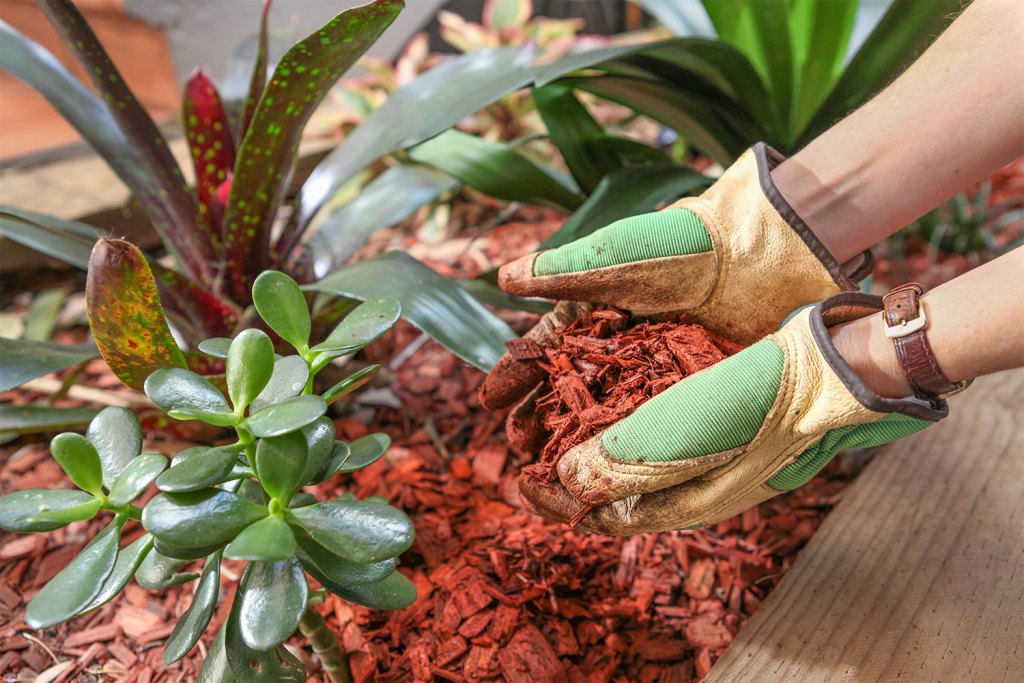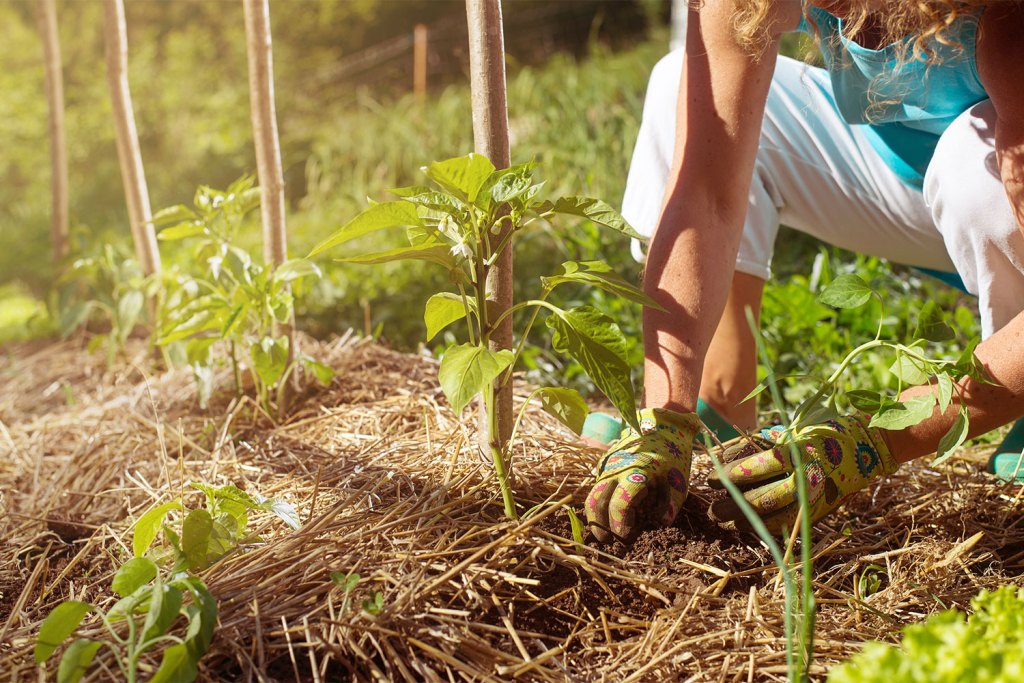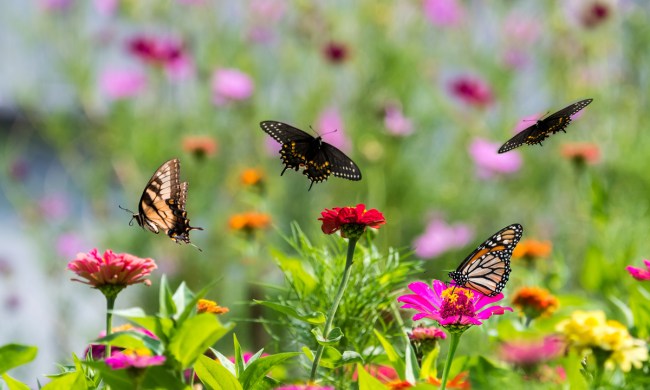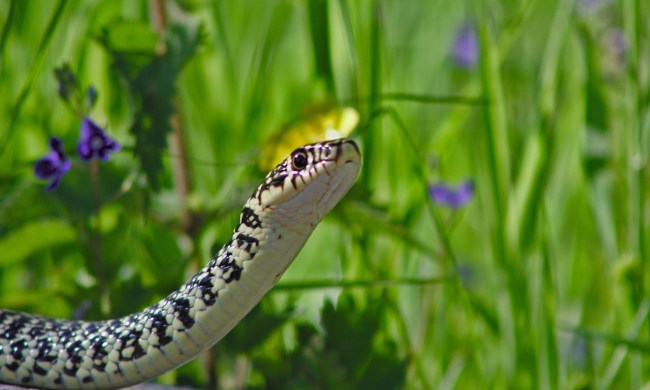The trend of “going organic” continues to gain popularity, and for good reason. Organic products tend to be healthier in nearly every way. A great example of this is organic mulch. Organic mulch is healthier for your plants, the environment, and you. It is the perfect option for keeping your homegrown fruits, veggies, and other plants free of harsh chemicals for a more clean and organic end result.

What’s in organic mulch?
Organic mulch can be created from nearly anything that was once alive. It is used to cover the garden bed around your plants, insulating their roots, holding onto water, and preventing erosion from wind and rain. Organic mulch also breaks down over time, becoming one with the soil beneath it. This adds extra benefits to your soil as the organic mulch combines its nutrients with the dirt.
Since organic mulch can contain a variety of natural materials, some of the most common are:
- Wood chips
- Tree bark
- Straw
- Sawdust
- Pine needles
- Paper
- Grass clippings
What are the benefits of organic mulch?
Beyond just being made from natural materials, organic mulch has a multitude of benefits that will enhance your garden on all levels.
- It adds extra nutrients to your soil. Organic mulch breaks down and adds its organic matter to the soil, creating a more nutritious and healthful environment for your plants to grow in.
- It can reduce and eliminate the growth of weeds. By spreading organic mulch over your garden bed, it cuts off oxygen and sunlight to the weeds. This prevents them from growing and taking over your garden.
- It helps reduce the compaction of soil. A thick layer of organic mulch is all you need to prevent your soil from becoming packed down. A packed layer of soil can create an obstacle for water to travel to the roots of your plants.
- It creates a finished, clean look. Nothing looks more fresh than a perfectly neat garden bed. Organic mulch will add a natural landscape and border to your garden, creating the perfect, clean design you’re looking for.
- It will insulate your soil and keep your plants warm. In the case of random cold nights or abrupt freezes, mulch will keep the soil and the roots of your plants warm.
- It saves water. Organic mulch is very absorbent and will release water slowly to your plants throughout the day, helping you save money on the water bill.
It prevents erosion. Wind and rain can wreak havoc on a garden bed, tossing the loose topsoil around aimlessly. You can easily prevent this with a quick layer of organic mulch.
What’s the best kind of organic mulch?
Since there are so many great options when it comes to organic mulch, picking a favorite can be difficult. Each one offers its own strengths, so it really just comes down to preference. Luckily, however, there are some organic mulches that stand out from the rest. These top picks include:
- Wood chip mulch
- Straw mulch
- Cornstalk mulch
- Cotton burr mulch
- Lawn clippings
- Leaf mulch
- Pine straw
What’s in non-organic mulch?
The thing that differentiates organic mulch from non-organic mulch is whether or not the material was once alive. In organic mulches, for example, wood chips were once part of a living tree, leaves were once on the branches of living trees, and lawn clippings were once thriving green grass.

Non-organic mulch can be just as effective as organic mulch but may lack some benefits. Certain types of organic mulch can also be a hazard to the environment if it gets blown away or disposed of incorrectly. Some of the most common types of non-organic mulch include:
- Rocks
- Gravel
- Landscape fabric
- Plastic sheeting
- Rubber mulch
If left in nature, the fabric, plastic, or rubber materials can cause harm to natural water sources, wildlife, and more. So, it is important to dispose of them properly. The benefit of non-organic mulch is that it lasts much longer than organic mulch, allowing you to save money and time on replacing it.
What type of mulch should I use?
There is no right or wrong choice when it comes to what type of mulch you should use. You should pick one that best suits your needs. Organic mulch is a great option for the environment, your plants, and you, providing an all-natural way to keep your garden bed clean, contained, and insulated.
Non-organic mulch can get the job done, also, but certain types can be harmful to the environment. Things like rubber, fabric, and plastic will not biodegrade, creating a potentially harmful pollutant if not disposed of properly after use.
When it comes to organic mulch, your plants will benefit from the all-natural ingredients and lack of harmful additives. This can be especially beneficial to you when you are growing food for consumption, such as fruits, vegetables, or herbs. Non-organic mulch can be more cost-effective in the long run, so choosing one of these options may be beneficial if that is a key consideration. Either way, there are a lot of great non-organic and organic mulch options available at home improvement stores and online. So, you’ll have plenty to choose from to ensure your garden stays healthy, clean, and protected.


